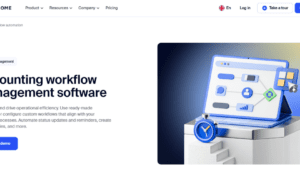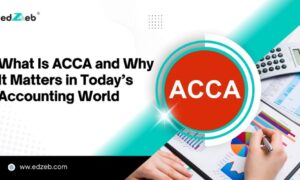It is important that, while planning your career, your future long-term goals and ambitions are taken into account. Choosing a career in accounting is a good choice taking into consideration the future growth in the industry, the salary and the demand for qualified accountants. Accounting professionals ensure that the money of companies, governments, organisations and people are being employed well.
Most people think of accounting as a static industry; the truth is, there’s no set accounting career path. There are a number of various fields of accounting that you can pursue, each with its own area of focus and specialisation. Almost all accounting careers require necessary technical accounting skills and capabilities; you’ll then be able to enter any range of directions based on your interests. Here are some career fields in accounting which may be accessible to you.
Financial Accountant
Financial accountants work for organisations, prepare reports that assess financial performance (for example, profit and loss statements, balance sheets, and income statements) for stockholders, creditors, and tax agencies – primarily, people external to the corporate. Their knowledge of accounting and auditing strategies and procedures is very important in serving an organisation.
Certified Public Accountant (CPA)
To be a certified public accountant, you need a CPA exam and certification. If you obtain a CPA certification, you will work at a public accounting firm. A job in a public accounting firm can offer you experience in many various aspects of the accounting field, from the preparation and review of financial statements to analysing budgets, tax work, consulting on a variety of financial problems.
Senior Financial Analyst
As long as an organisation is big enough to need a financial team, a senior analyst will sometimes be found there. Their primary duties are to review the finances of an organisation and make recommendations to improve the company’s financial situation. A senior analyst is the leader of a group of financial analysts who work with the money of the company they work for, spending it in all areas of the business. They have to be very diligent, detail-oriented and correct. The leadership skills are going to be earned over years of expertise as a financial consultant or manager; however, a master’s degree in management, accounting or business administration can have a great impact on skills and job market success.
Forensic Accountant
Forensic Accountants specialise in areas like fraud and auditing; as the government cracks down on financial wrongdoing, forensic accountants are in great demand. Forensic accounting combines information of accounting, law, investigative techniques, data collection and analysis, as well as accounting technology. It’s an advanced field that needs lots of education and knowledge. Forensic accountants need a high level of education. While you’ll begin your career in an entry-level position with a degree in Forensic Accounting, a master’s degree in Forensic Accounting is certainly a good choice.
Treasury Analyst
Treasury analysts keep all of the financial wings (bookkeeping, accounts receivable, etc.) working to make sure the money is managed effectively. As analysts, treasury managers are required to see patterns and create predictions to set up for the long run. The educational entry demand may be an academic degree; however, in order to rise to the very best level, you’ll need to have an academic degree. For a global or multinational corporation, a specialisation in international business would be a valuable credential on your resume.
Tax Accountant
Whether operating in a corporate accounting workplace, for a public accounting firm, or as an independent CPA, a tax accountant should continually on top of adjusting laws, quarterly payments and reports, payroll and different employment taxes. In a massive corporation, that may mean operating with a team; however, several tax accountants realise it profitable to form their own method. You’ll need a minimum of a degree to qualify for the CPA test that may be a must if you are going to work as a tax accountant. If you’re trying to get a job within a corporation or accounting firm, the CPA license and a bachelor’s degree is all the qualification you need.
Auditor
Financial auditors examine a company’s financial statements, expense reports and accounting records to make sure that the information is correct. Auditors operating for a company could also be independent contracts, or add the corporation’s accounting department to keep records clean and legit. Auditors assess accuracy of financial statements and reconcile errors, review and advise clients on accounting procedures.
Cost Accountant
Cost accountants do the analytical and research work of figuring out the costs of production. Cost accountants measure the value of manufacturing merchandise or providing services by deciding the fixed and variable expenses necessary for production. These prices embody analysis and development, equipment, marketing and human resources. The information gathered by cost accountant is helpful for budgeting and products rating. Cost accountants usually collaborate with an executive team to make a financial statement for the corporate. The job needs plenty of knowledge and processing, thus advanced laptop skills are going to be essential.
Associate of Chartered Certified Accountant (ACCA)
One of the most advanced accounting courses, the Associate of Chartered Certified Accountant (ACCA) is one of the most professional in the world. Tracing its history in the first decade of the 20th century, it is now the largest professional body.
The ACCA exams are tough, but the rewards justify. ACCAs are the most sought after and with limited passing students, their demand not only grows, but so do the financial benefits.
The ACCA course consists of three modules, each with its own set of courses. Only after all three modules are completed, is a person qualified to be called an ACCA.
Typical job openings for ACCA holders include top management ones, such as Chief Financial Officers, CEOs and others.
It is due to the demand and professional career offerings that many people choose ACCA as the best option.
Accountants are required in nearly every style of business, across all sectors. This means that it’s up to you to make a decision wherever you think that you’ll fit in best. Think about your goals. Your interest in specific accounting fields will dictate the kinds of companies you’ll work for. If you’re curious about internal auditing, it is likely that you’ll have to look at larger companies. If you’re an independent worker, maybe you’d do well as financial consultant. Depending on the type of accounting you are doing, your work atmosphere will vary considerably. After your graduation, obtaining a professional certification can make you more competitive in the job market. A career in accounting demands the right qualification and skills, so the decision is yours on which career path you will choose.



































